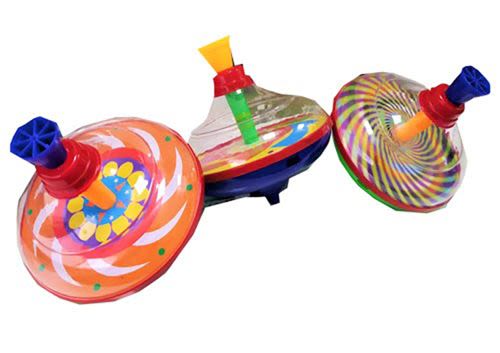
What is “Nachas Ruach?”
If tension is “kotzer ruach,” then a feeling of calm, security, well-being and gratification is “nachas ruach”, something you don’t have to chase after…

“Nachas Ruach”: Jewish Spirituality and Psychotherapy, Part 2
The Torah-based approach to enhance personal growth and healing developed in the 1990s was named Nachas Ruach and I have a sense of having been inspired from Above (Siyata diShmaya) to utilize this unique concept.
“Nachas Ruach” is a concept mentioned several times in the Bible that is difficult to translate. For clinical purposes, the experience of nachas ruach is related to being calm and relaxed, but it is different from being  “mellow” or “chilled out.” It is somewhat like serenity and tranquility, or being fulfilled and happy — but the concept is deeper than that.
“mellow” or “chilled out.” It is somewhat like serenity and tranquility, or being fulfilled and happy — but the concept is deeper than that.
Nachas Ruach can be defined as an inner sense of wellbeing and security experienced by focusing one’s attention on “just being alive” in the “here and now,” with more awareness, appreciation, and acceptance that the present moment is constantly being created by Hashem. A desirable and pleasant emotional and spiritual state, nachas ruach also connotes having a sense of inner satisfaction or fulfillment and can be translated to mean experiencing gratification of one’s spirit.
Utilizing deep breathing is an important tool to help people become freer of stress and have more of a sense of nachas ruach… going from a state of feeling dis-ease (“I’m not OK”) to a place of feeling at ease (“I’m really okay”). Most people naturally experience the positive and often powerful impact of just taking a conscious deep breath, breathing in positive energy or life force (chai) and letting go of negative life force: imagining breathing in nachas ruach and releasing tension or “kotzer ruach”. Consciously breathing in the air of Eretz Yisrael can add another dimension to the healing experience. The Rabbis teach that the “air of Eretz Yisrael can make one wise” (Bava Basra 158b). I experience this possibility almost instinctively after coming back to Jerusalem after being away for even a few days, and I appreciate being able to take a deep breath there again. Sometimes breathing in the holy energy or kedushah from the air of Jerusalem can in itself influence one to move from a state of kotzer ruach to nachas ruach, b’ezras Hashem.
Quite often people say, “I have everything but I am not really happy.” Nachas ruach challenges the modern Western culture’s frantic “pursuit of happiness.” Nachas ruach is not actively sought per se.
It is more of a consequence of acting in the “right way” and having awareness and faith that is grounded in basic Torah perspectives and values. At the same time, nachas ruach is an inner desirable state that people want to achieve. The experience of nachas ruach is incompatible with anxiety and is a result of coming to terms with one’s life — appreciating and accepting more who you are and what you have, rather than focusing on what you lack.
From this place of equanimity a person is usually able to cope with challenges of daily living better and act more the way one wants to act.
For example, a person will be less likely to scream at his kids and more tolerant of people’s imperfections. When having a sense of nachas ruach, one can approach the world with a deeper feeling of basic security that allows him to have less of a need to be a “control freak” or a rigid perfectionist.
For people with a history of addiction as well as other psycho-social issues and symptoms, experiencing the pleasant inner state of nachas ruach, even briefly, can substitute to a certain degree for their previous destructive ways of “getting high,” and it can teach them a more positive and healthy way to change their state of mind and mood.
On a spiritual level, when in a place of nachas ruach, one can experience Hashem’s Presence in this world and is able to have increased emunah (faith) and trust (bitachon) in Hashem’s involvement in his life. In other words, reaching a state of nachas ruach involves greater deveikus, that is, a sense of having a more intimate relationship with Hashem in one’s life and while doing mitzvos. One is also able to cope more effectively and maturely with one’s personal struggles and the “ups and downs” of daily life, sensing that everything that happens is “for the good”.
One of the goals of Jewish meditation and hypnosis is to teach people how to access an inner place of nachas ruach, which is connected to a state of “being” rather than “becoming.” “Being” is related to the feeling that you really are “good enough” in the present moment, irrespective of any particular achievements.
“Becoming” implies believing that in order to be “successful and happy,” you need to first achieve a long-term important goal, like finishing graduate school or making your first million dollars. Since such an objective is necessarily in the future and involves focusing excessively on reaching the sought-after goal — that is, on “becoming” — it usually makes it more difficult to fully experience the present moment. This is often true for people who have been “socialized” in modern Western culture. The concept of “mindfulness” in the holistic paradigm also stresses the importance of focusing more on the present moment.
The striving to “become,” which involves setting goals for future achievement, is laudable, whether it is to become a doctor, a successful business person, or a talmid chacham. However, it is also important to balance the goal of “becoming” with the experience of “being,” which can be reached by accessing a state of nachas ruach.
An internalized and fairly stable sense of nachas ruach can often be achieved to some degree after a period of working on oneself.
Having nachas ruach implies a basic intellectual and emotional acceptance of what one understands to be Hashem’s will at any given point in one’s life. This acceptance makes it possible for people to maintain some serenity and sense of meaning even in the midst of life’s challenges and difficult situations. The Baal Shem Tov Zt”l teaches that this is possible when one is able to internalize the teaching of David Hamelech in the Psalms when he stated: “I have placed Hashem always before me”.
Dr Naftali Fish
nachatruach@walla.com
www.nachatruach.com
To be continued.
* * *
The above essay is an excerpt from Nachas Ruach, by Dr. Naftali Zvi Fish
Dr. Naftali Zvi Fish is a licensed clinical psychologist and hypnotherapist in Israel. After completing Doctorate in 1984 he made Aliyah from Philadelphia with his family, living in Jerusalem. During this time Dr. Fish has become a leading authority in the treatment of addictions, healing the “inner wounded child” and the enhancement of self-esteem which often underlies clinical issues. In the mid-nineties he founded and administered the first full-time Rehab program designed for Jewish addicts with the support of Rav Dr Abraham Twerski. Based on extensive experience Dr. Fish has developed and implemented the Nachas Ruach Treatment Model, a new and unique Paradigm to facilitate psycho-social and spiritual growth and healing. It utilizes and effectively integrates Torah perspectives and values, “openly bringing Hashem into the room,” within the context of professional Psychotherapy and Hypnotherapy. Dr. Fish has a full time private practice and has been teaching various courses in Psychology at Touro College – Israel since1993.














Tell us what you think!
Thank you for your comment!
It will be published after approval by the Editor.